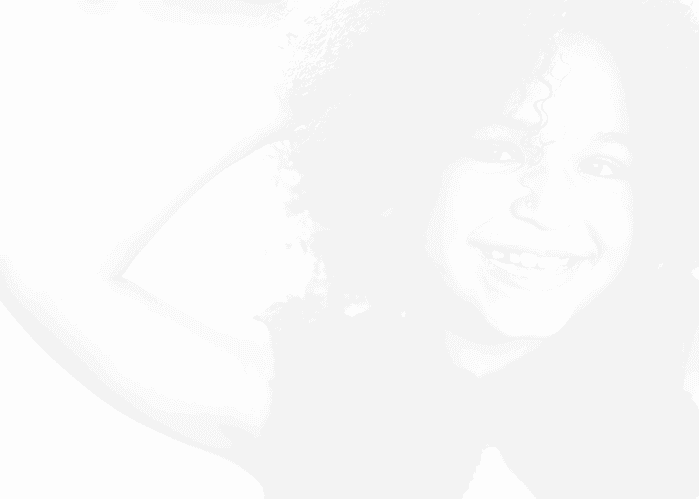





Save $250 off braces or Invisalign!*
Schedule your appointment online.
Are you curious about how old you have to be to get braces? You’ve come to the right place. At Uncommon Orthodontics, we understand that determining the best age for braces is a common concern for parents and individuals considering orthodontic treatment. In this article, we provide valuable information about the age requirements for braces and answer frequently asked questions. Whether you’re a parent with a child who might need braces or an adult considering orthodontic treatment for yourself, we’ve got you covered.
Determining the Best Age for Braces
One of the most common questions in orthodontics is, “How old do you have to be to get braces?” The ideal age for braces can vary depending on several factors that orthodontists consider.
Factors that influence the ideal age for braces include:
- Dental Development: Orthodontists usually prefer to start treatment when permanent teeth have erupted, typically around ages 10 to 14. At this stage, misalignments can be better assessed, and appropriate treatment can be planned.
- Jaw Growth: A child’s growth spurt can be used to guide jaw development and improve bite alignment, making jaw growth an important factor.
- Severity of the Issue: The severity of the orthodontic issue can also determine the best age for braces. Some cases may need early intervention before all permanent teeth have come in, while others are best treated during the teenage years.
Common age ranges for getting braces:
Most children start orthodontic treatment between ages 9 and 14. This range allows orthodontists to capitalize on natural growth and development of the teeth and jaw.
Benefits of getting braces at a younger age:
- Early intervention can prevent more severe orthodontic issues later in life.
- It helps guide jaw growth and improve facial symmetry.
- Starting treatment early can boost a child’s self-esteem by improving their smile and overall oral health.
At Uncommon Orthodontics, we understand the importance of determining the best age for braces. Our experienced orthodontists will assess your child’s individual needs and recommend the most suitable treatment plan. Contact us today to schedule a consultation and take the first step towards a healthy, beautiful smile!
Signs Your Child Might Need Braces
Wondering if your child needs braces? Look out for certain signs that indicate the need for orthodontic treatment:
- Crooked or Crowded Teeth: Crooked or crowded teeth can affect the appearance of your child’s smile and cause oral health issues in the long run. Braces can properly align the teeth, improving both aesthetics and functionality.
- Bite Alignment Issues: Problems with bite alignment, such as an overbite, underbite, or crossbite, may require braces. These irregularities can lead to difficulties in chewing, speaking, and even breathing. Orthodontic treatment can correct the alignment of jaws and teeth, ensuring proper function and preventing future dental problems.
- Importance of Early Orthodontic Evaluation: The American Association of Orthodontists recommends that children have their first orthodontic check-up by age 7. Early evaluation allows orthodontists to identify potential issues and determine the appropriate timing for treatment, which may involve braces.
If you notice any of these signs in your child, it’s advisable to consult with an orthodontist who can provide a comprehensive evaluation and recommend the best course of action. Early detection and intervention can lead to better treatment outcomes and improved oral health for your child.
Consulting an Orthodontist for Braces
When it comes to getting braces, consulting an orthodontist is essential to guide you through the process. Here are some key topics to consider:
- When to Schedule Your Child’s First Orthodontic Exam: Schedule your child’s first orthodontic exam by age 7. By this time, permanent teeth have started coming in, allowing the orthodontist to assess dental development and identify potential issues.
- What to Expect During the Initial Consultation: During the initial consultation, the orthodontist will evaluate your child’s teeth and bite alignment. They may take X-rays, photographs, and impressions for more information. Based on the assessment, they will discuss potential treatment options, duration, and cost.
- Understanding the Orthodontic Treatment Process: The treatment process typically involves several phases, which may include wearing braces, using aligners, or other orthodontic appliances. Regular visits to the orthodontist are required for adjustments and progress checks. The duration of treatment varies depending on the individual case.
At Uncommon Orthodontics, our experienced orthodontists provide personalized care to patients of all ages. We specialize in a wide range of orthodontic treatments, including braces and Invisalign. Contact us today to schedule a consultation and take the first step towards achieving a confident and healthy smile.
Braces for Different Age Groups
Orthodontic treatment varies based on age, and understanding the options available can help you make an informed decision about the right time to get braces.
For children and teenagers, braces for kids are commonly used to correct dental issues such as crooked teeth, overcrowding, or misalignment. Traditional metal braces, made of high-quality stainless steel, are often recommended for their durability and effectiveness. Additionally, there are more aesthetically pleasing options like ceramic braces or clear aligners, which are removable and less noticeable.
Adults can also benefit from braces to improve their smile and oral health. More adults are seeking orthodontic treatment nowadays, and options like clear aligners offer discreet solutions for adults who may be conscious about their appearance during treatment.
For elderly individuals, it’s important to consider their unique needs and circumstances. Some may have underlying health conditions or reduced bone density, affecting the suitability of certain treatment options. However, options like clear aligners or limited orthodontic treatment can address specific issues.
At Uncommon Orthodontics, we understand the diverse needs of individuals in different age groups. Our experienced orthodontists can assess your specific situation and recommend the most suitable braces option for you or your loved ones. Contact us today to schedule a consultation and take the first step towards achieving a beautiful and healthy smile.
FAQs About Getting Braces
Considering getting braces but have some questions? We’ve got you covered! Here are some frequently asked questions about getting braces:
- How Old Do You Have to Be to Get Braces? The American Association of Orthodontists says to schedule your child’s first orthodontist visit by age seven, or at the first visible sign of malocclusion (misalignment), though typically braces are not applied until later on in most cases, but it is always best to consult an orthodontist.
- What Age Can You Get Braces? This will depend on the unique needs of the patient at their given age. Come children need early intervention as young as seven.
- Financial Considerations and Insurance Coverage: Orthodontic treatment, including braces, can be a significant investment. Costs vary based on factors such as the type of braces, the length of treatment, and your location. Consult with your orthodontist to get a clear understanding of the costs involved and explore any potential insurance coverage or flexible payment options that may be available to you.








